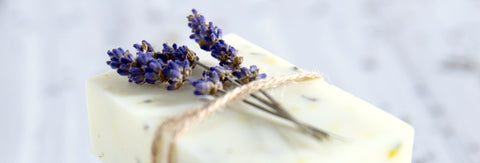On paper, the holiday season should be relaxing. Picturesque snow falls outside the living room window, warm flames flicker in the fireplace, and your morning alarm clock is given a few days off. Yes, the promise of spending more time with your family and less time thinking about work is an enticing one. Unfortunately, those idealistic holiday visions rarely match the reality of how we spend our holidays: shoveling snow, buying gifts in bustling malls, and travelling in inclimate conditions to visit family.
Those factors might explain why a 2015 survey conducted by Healthline found that more than 60 percent of respondents felt that their stress levels were elevated during the holiday season. If anything, that number feels low.
We’ve all been there. Festive stress, as some have called it, happens to even the most zen of us. But stress is something that needs to be managed and mitigated to the best of our abilities because it’s not just a feeling—stress has real impacts on our minds and bodies.
Here are a few ways that holiday stress can affect your health, and a few tips for coping with its effects.
Sleepless nights become exhausted days

A cruel irony of the holiday season is that you finally have the time to rest, but you’re too stressed to fall asleep. Among the most common impacts of stress are spikes in your adrenaline and cortisol levels, which keep you alert and awake. When you’re crunched for time, that’s useful—you need the extra surge of energy. The problem is, those spikes are hard to control, and stress doesn’t yield for your convenience. The result is a sub-par sleep, or in chronic cases, inability to sleep at all. A 2012 study conducted by the Korean Society for Brain and Neural Science wrote that excessive stress “activates the defense system of the central nervous system,” and concluded that short-term insomnia often follows. And it doesn’t stop there, because sleepless nights lead to sluggish days. If holiday stress has your sleep schedule out of whack, consider adding melatonin and magnesium supplements to your stress-reduction efforts to get your circadian rhythms back on track.
Your digestion can go haywire

For many of us, the best part of the holidays isn’t the gifts; it’s the food. But if you’re not careful, the holidays can ruin more than your diet. Stress can lead to a lack of appetite, overeating, or digestive irregularities. Stressful situations put your body into fight-or-flight mode, and can decrease both blood flow and oxygen to your stomach, resulting in side effects like an upset stomach or irritable bowels. Even in less extreme cases, studies like one conducted by the Connecticut State Department of Mental Health and Addictions Services and the Connecticut Mental Health Center found that when we’re stressed, we favour foods high in sugar. Long term, that can lead to obesity, but in the short term it can wreak havoc on your gut. Making a conscious choice to eat healthy, even when stressed, goes a long way, but a simple probiotic supplement like Jamieson’s gummies can help your stomach get back on track.
You might draw a blank
Feel like you’re forgetting something or someone on your holiday shopping list? It’s not your imagination. While stress can occasionally improve your working memory, that’s hardly a given, and it’s just as likely that stress will impair your memories. In fact, a 2005 study published in the Journal of Neuroscience found that stress severely impacted memory retrieval in test subjects. In part, that’s because stress affects how your brain’s hippocampus functions, which makes it hard to create new memories and access old ones. And aside from reducing your stress levels, there’s no guaranteed fix. Luckily, you can help manage stress by exercising, which releases feel-good endorphins, or by meditating. A brain-boosting omega-3 supplement high in DHA can also go a long way, as DHA has been shown to be crucial for brain health.
Expect a lingering case of the sniffles
In the strictest sense, stress is bad for you. It leads to bad habits, like sleeping less, eating more, or even biting your nails. But stress can also impair your immune system, leaving you susceptible to infections and illnesses. In the short term, spiked cortisol levels from stress can actually strengthen your immune system, but that effect is fleeting; if you’re in a constant state of stress, your body gets used to those cortisol levels, leaving you susceptible to inflammation when they finally fall. In 2004, Suzanne Segerstrom, PhD, conducted a meta-analysis of nearly 300 studies on stress and found that people who carried stress for an extended period of time—even a few days—had weakened immune systems. So what’s the fix? It’s important to reduce your stress levels before you get sick, but if you feel a scratchy throat coming on, Jamieson’s chewable Cold Fighter helps your immune system fight back with a potent mix of ginger, zinc, echinacea, and vitamin C.
You may experience hair loss

“Pulling one’s hair out” is an idiom we’re likely all familiar with, but aside from cartoons, it’s rarely literal. However, that’s not to say that stress can’t have an impact on your luscious locks. Stress has been linked to temporary conditions like alopecia areata—sometimes called spot baldness—or telogen effluvium, which causes your hair to temporarily start falling out. What makes this worse is that if you’re experiencing these symptoms, losing your hair will only add to your stress. But luckily, these ailments are rarely permanent and almost always entirely reversible. The trick is to work on managing your stress levels and balancing your efforts with a well-selected supplement like biotin to help promote healthy hair growth while also keeping your nails and skin strong.
References:
- Han, Kuem Sun et al. “Stress and sleep disorder” Experimental neurobiology vol. 21,4 (2012): 141-50.
- Yau, Y.H.C. and M.N. Potenza. “Stress and eating behaviors” Minerva endocrinologica vol. 38,3 (2013): 255-67.
- Kuhlmann S, Piel M, Wolf OT. “Impaired memory retrieval after psychosocial stress in healthy young men.” J Neurosci. 2005 Mar 16;25(11):2977-82. PubMed PMID: 15772357.
- Segerstrom, Suzanne C and Gregory E Miller. “Psychological stress and the human immune system: a meta-analytic study of 30 years of inquiry” Psychological bulletin vol. 130,4 (2004): 601-30.
- Peters, Eva M J et al. “Hair and stress: A pilot study of hair and cytokine balance alteration in healthy young women under major exam stress” PloS onevol. 12,4 e0175904. 19 Apr. 2017, doi:10.1371/journal.pone.0175904
- Gupta M.A., Gupta A.K., Watteel G.N. Stress and alopecia areata: a psychodermatologic study. Acta Derm Venereol. 1997 Jul;77(4):296-8. PubMed PMID:9228223.



